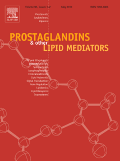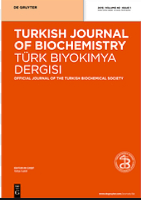
PEPTIDES
Scope & Guideline
Elevating Understanding of Peptide Dynamics
Introduction
Aims and Scopes
- Neuropeptide Research:
The journal consistently publishes studies exploring the roles of neuropeptides in the central and peripheral nervous systems, examining their implications in neurodegenerative diseases, pain modulation, and metabolic disorders. - Peptide Therapeutics:
Research on novel peptide-based therapeutics, including their mechanisms of action and potential applications in treating various diseases, particularly neurodegenerative disorders, obesity, and pain management. - Mechanistic Studies:
A strong emphasis on elucidating the molecular mechanisms through which peptides exert their effects, utilizing techniques ranging from in vivo animal models to biochemical assays. - Interdisciplinary Approaches:
Integration of various scientific disciplines, including pharmacology, biochemistry, and molecular biology, to enhance understanding of peptide functions and therapeutic potentials. - Clinical Applications:
Focus on translational research that aims to bridge the gap between peptide research and clinical applications, particularly in the context of mental health, metabolic syndromes, and neuroprotection.
Trending and Emerging
- Neuroinflammation and Neuroprotection:
A growing focus on the roles of peptides in neuroinflammation and their protective effects against neurodegenerative conditions, indicating an increasing interest in the neuroprotective potentials of peptides. - Gut-Brain Axis:
Emerging studies investigating the influence of gut-derived peptides on brain function and behavior, highlighting the importance of the gut-brain axis in health and disease. - Peptide-Based Biomaterials:
An increase in research on the development of peptide-based biomaterials for therapeutic applications, including drug delivery systems and tissue engineering. - Personalized Medicine Approaches:
Research is trending towards personalized medicine, with studies exploring how individual variations in peptide signaling pathways can influence treatment outcomes. - Chemogenetics and Optogenetics in Peptide Research:
The integration of advanced techniques like chemogenetics and optogenetics to manipulate peptide signaling pathways in specific neuronal populations is becoming more prevalent, paving the way for innovative therapeutic strategies.
Declining or Waning
- Traditional Herbal Peptides:
Research on traditional herbal peptides, such as those derived from Kampo medicine, has decreased in frequency, possibly due to a shift towards more mechanistic and modern therapeutic approaches. - Basic Pharmacological Studies:
There is a noticeable decline in basic pharmacological studies focusing solely on peptide interactions without addressing their clinical implications or translational relevance. - Animal Models of Disease:
Although still significant, the number of studies using animal models to explore peptide functions has waned, potentially due to increasing ethical considerations and a push for alternative research methodologies.
Similar Journals

PROTEIN AND PEPTIDE LETTERS
Exploring the forefront of biochemistry and structural biology.PROTEIN AND PEPTIDE LETTERS is a prominent peer-reviewed journal published by Bentham Science Publishers Ltd, specializing in the dynamic fields of biochemistry and structural biology. With an ISSN of 0929-8665 and a corresponding E-ISSN of 1875-5305, the journal has been a pivotal platform for researchers since its inception in 1994. Spanning various aspects of protein and peptide research, it aims to disseminate groundbreaking findings that enhance our understanding of molecular mechanisms and therapeutic applications. Although categorized in the Q3 quartile for biochemistry and medicine, and Q4 in structural biology within the 2023 metrics, it remains a valuable resource in the academic arena, offering insight into the latest research and advancements. As the journal converges towards its 2024 milestone, it continues to reflect the evolving landscape of molecular research. While it currently does not offer open access, the accessibility to its impactful content is essential for students, professionals, and researchers invested in these critical scientific disciplines.

PROSTAGLANDINS & OTHER LIPID MEDIATORS
Innovating Insights into Bioactive LipidsPROSTAGLANDINS & OTHER LIPID MEDIATORS, published by Elsevier Science Inc, is a leading journal dedicated to the advancements in the field of lipid mediators, with a specific focus on prostaglandins and other bioactive lipids. This journal, indexed under ISSN 1098-8823 and E-ISSN 2212-196X, serves as a crucial platform for researchers and professionals to disseminate significant findings that span multiple disciplines, including Biochemistry, Cell Biology, Pharmacology, and Physiology. In the 2023 category quartiles, it has achieved commendable positions such as Q2 in Biochemistry and Q2 in Physiology, underscoring its importance and influence in these domains. Although it is not an open-access journal, it provides robust access options, enhancing the visibility of vital research. With its establishment in 1996, the journal continues its commitment to fostering innovative research until 2024, making it an essential resource for those involved in the dynamic realms of lipid biology and medical research.

Journal of Inflammation Research
Pioneering Insights into Inflammation and Its ImpactJournal of Inflammation Research, published by Dove Medical Press Ltd, is a premier open-access journal dedicated to advancing the field of immunology and allergy, with a particular focus on the biological mechanisms underlying inflammation. Since its inception in 2008, this journal has provided a vital platform for researchers to share their findings and foster collaboration within the global scientific community. With an impressive 2023 impact factor placing it in the Q2 category for both Immunology and Immunology and Allergy, the journal has consistently maintained its relevance and high academic standards, ranking #100 in Medicine (Immunology and Allergy) and #118 in Immunology (Immunology and Microbiology) according to Scopus metrics. The E-ISSN 1178-7031 allows for easy access to a plethora of pioneering research articles, reviews, and clinical studies that address contemporary issues in inflammation and immunity. As a leading resource for researchers, professionals, and students alike, Journal of Inflammation Research is committed to facilitating the dissemination of groundbreaking discoveries that contribute to improved therapeutic strategies and health outcomes.

EXPERIMENTAL AND MOLECULAR MEDICINE
Pioneering discoveries in biochemistry and molecular biology.EXPERIMENTAL AND MOLECULAR MEDICINE, published by SpringerNature, is a premier open-access journal that has been at the forefront of biomedical research since its establishment in 1996. With a focus on innovative studies in biochemistry, molecular biology, and clinical biochemistry, the journal has consistently maintained a distinguished position within the top quartile (Q1) across multiple categories, underscoring its significant impact in these fields. The journal offers researchers and practitioners a platform for high-quality, peer-reviewed articles that advance our understanding of molecular mechanisms underlying health and disease. As a crucial resource for scholars seeking to explore cutting-edge research and practical advancements, its inclusion in relevant databases such as Scopus reflects an exceptional ranking with notable percentiles—placing it among the best in biomedical sciences. With a commitment to open access, EXPERIMENTAL AND MOLECULAR MEDICINE ensures that findings are readily available to the global academic community, facilitating collaboration and innovation in molecular medicine.

Turkish Journal of Biochemistry-Turk Biyokimya Dergisi
Illuminating the path of biochemistry with open access scholarship.Turkish Journal of Biochemistry-Turk Biyokimya Dergisi, published by WALTER DE GRUYTER GMBH, is a pivotal open-access journal in the field of biochemistry that serves as a forum for innovative research and scholarly discourse. Since its inception in 2009 and transitioning to open access in 2015, this journal has gained recognition within the scientific community, reflecting a commitment to advancing knowledge in biochemistry and related medical sciences. With a diverse scope that encompasses molecular biology, clinical biochemistry, and the broader arena of biochemical studies, Turkish Journal of Biochemistry offers researchers, professionals, and students access to impactful studies and current developments. Although currently positioned in the lower quartiles in specific categories, the journal aims to enhance its visibility and engagement as it converges towards a promising future, fostering collaboration and knowledge exchange among biochemists across Turkey and around the globe. This journal is vital for anyone seeking to stay abreast of emerging trends and research findings in biochemistry.

PTERIDINES
Empowering Global Dialogue on Pteridine SciencePTERIDINES is a unique journal dedicated to the study of pteridines and their implications in biochemistry and clinical research. Published by DE GRUYTER POLAND SP Z O O, this Open Access journal has been a vital resource since its inception in 1989, steadily evolving to include a diverse range of topics pertinent to molecular medicine and biochemistry. With its current classification in the Q4 quartile for Biochemistry, Clinical Biochemistry, and Molecular Medicine, PTERIDINES offers a platform for researchers and professionals seeking to disseminate and access groundbreaking findings. Although the journal has a modest Scopus ranking, it serves as an important outlet for both emerging and established scholars in the field, particularly those focusing on the biochemical roles of pteridines. Based in Germany, the journal invites contributions from around the globe, providing equitable access to all readers since 2018, making significant strides towards inclusive scientific discourse. As such, PTERIDINES is a valuable asset for anyone engaged in the exploration of pteridines and their multifaceted roles in health and disease.

Peptide Science
Innovative insights into the world of peptide chemistry.Peptide Science, published by Wiley, is an esteemed journal dedicated to advancing the understanding of peptide chemistry and its applications across various scientific disciplines, including biochemistry, biophysics, and organic chemistry. Since its inception in 2018 and continuing through 2024, this journal has provided an essential platform for the dissemination of innovative research, engaging articles, and critical reviews. With an impressive Q3 ranking in the fields of Biochemistry and Biomaterials, and a Q2 status in Biophysics and Organic Chemistry as of 2023, Peptide Science acknowledges its integral role in addressing significant scientific challenges. This open-access journal ensures that findings are readily available to a global audience, fostering collaboration and knowledge sharing among researchers, professionals, and students alike. The journal exemplifies excellence in scholarly communication, making it an essential resource for anyone interested in the intricate world of peptide research.

GeroScience
Elevating Knowledge in Aging ScienceGeroScience, published by Springer, is an esteemed open-access journal that focuses on the multidisciplinary field of aging research. Since its inception in 2017, the journal has quickly established itself as a leader in its field, achieving impressive Q1 quartile rankings across various categories, including Aging, Cardiology and Cardiovascular Medicine, Geriatrics and Gerontology, and Complementary and Alternative Medicine, as per 2023 evaluations. With a significant impact factor that underscores its influence and reach in academia, GeroScience aims to disseminate high-quality research that addresses the complex challenges and advancements related to aging. Its accessible publication format fosters greater dissemination of knowledge and encourages collaboration among researchers, practitioners, and students eager to contribute to the growing body of work on age-related health issues. As it continues to thrive, GeroScience remains a pivotal resource for anyone looking to stay at the forefront of aging research.

JOURNAL OF PEPTIDE SCIENCE
Pioneering insights into peptide chemistry and drug discovery.JOURNAL OF PEPTIDE SCIENCE, published by Wiley, is a vital resource for researchers and professionals in the fields of biochemistry, drug discovery, and molecular biology. Established in 1995 and encompassing research through 2024, this journal provides a platform for disseminating cutting-edge studies related to peptide synthesis, structure, function, and applications in therapeutics. Although it currently does not offer open access, its robust content has earned it a respectable Q3 ranking in several categories, including biochemistry and pharmacology, according to the latest metrics. Researchers will find significant insights linked to peptide chemistry and its implications in medical sciences, making the JOURNAL OF PEPTIDE SCIENCE an essential addition to academic libraries and for those passionate about peptide research and its potential breakthroughs.

MECHANISMS OF AGEING AND DEVELOPMENT
Elevating Knowledge in Developmental BiologyMECHANISMS OF AGEING AND DEVELOPMENT is a premier academic journal published by Elsevier Ireland Ltd, specializing in the fields of aging and developmental biology. With an impressive Q1 ranking in both categories as of 2023, this journal serves as a vital platform for researchers, professionals, and students seeking to advance their understanding of the complex biological processes that underlie aging and development. Since its inception in 1972, the journal has steadily contributed to the accumulation of valuable knowledge, maintaining a history of rigorous peer-reviewed articles that explore genetic, molecular, and cellular mechanisms impacting aging and development. Its high Scopus rankings—notably 5th in Aging and 8th in Developmental Biology—underscore its significance in the scientific community. While the journal follows a traditional publishing route without Open Access options, it remains an indispensable resource for those dedicated to the investigation of life’s aging processes and developmental phenomena. With publication projected through to 2024, the MECHANISMS OF AGEING AND DEVELOPMENT continues to shape the discourse within these critical research domains.